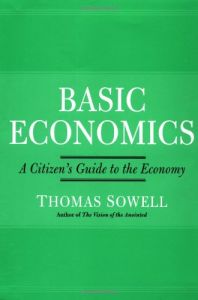Join getAbstract to access the summary!

Join getAbstract to access the summary!
Thomas Sowell
Basic Economics
A Citizen's Guide to the Economy
Basic Books, 2000
What's inside?
Economics is a science that is wide open to interpretation as seen in this classic, if conservative, explanation.
Recommendation
Anyone not familiar with the work of Thomas Sowell would be well advised to check out the blurbs on the back of the dust jacket of Basic Economics, where praise flows from conservative bastions like The Wall Street Journal, The Washington Times and the American Enterprise Institute. Take this as a warning that, even though Sowell’s book does offer an excellent plain-English explanation of fundamental economics, its real mission is to explain how many societal catastrophes are caused by government policies he deems faulty. In so doing, he takes aim at minimum wage standards, rent control and, through his spirited defense of international trade, the anti-globalization crowd. But no matter which side of the ideological fence you occupy, getAbstract.com suggests reading this book for its insightful distillation of some of our most passionate political debates down to their economic essentials.
Summary
About the Author
Thomas Sowell is the Rose and Milton Friedman Senior Fellow on Public Policy at the Hoover Institution, Stanford University. He has taught economics at colleges and universities across the country and has published articles and books on economics in the United States and overseas.



















Comment on this summary